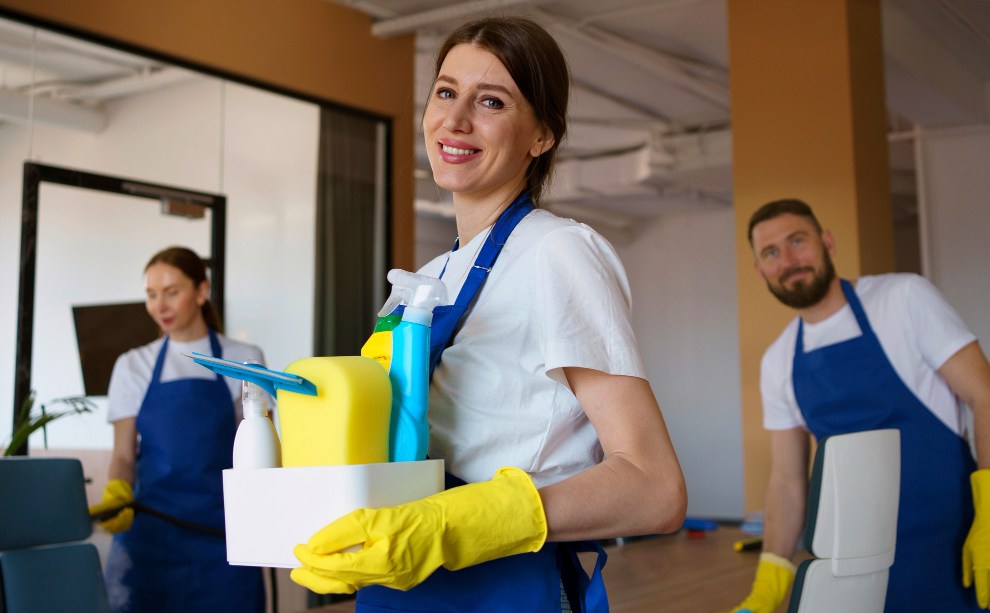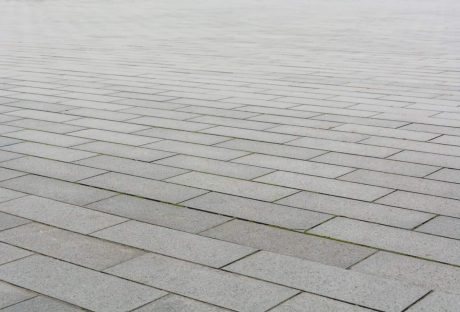In today’s fast-paced world, maintaining a clean and orderly environment, whether at home or work, is a challenge many face. While doing it yourself is an option, scheduling a professional cleaning service offers efficiency and thoroughness that can hardly be matched. However, one crucial question remains: How often should these services be scheduled? This is a challenging answer as it depends on multiple factors like the type and usage of the space, personal cleanliness standards, lifestyle, and budget.
This comprehensive guide explores these factors, providing insights to help you decide the best cleaning schedule for your needs.
Understanding Your Space
The type of space you occupy is pivotal in determining the cleaning frequency.
- Family Homes: Homes, especially with kids and pets, are prone to frequent spills, stains, and general untidiness. A weekly cleaning schedule is often recommended to keep up with the chaos and maintain a hygienic environment.
- Apartments: A bi-weekly cleaning can often suffice for smaller spaces like apartments, especially those occupied by singles or couples without pets. These spaces generally accumulate less dirt and clutter.
- Office Spaces: The frequency of cleaning in commercial office spaces should be dictated by the daily foot traffic and the nature of work conducted. Highly trafficked areas like lobbies, bathrooms, and meeting rooms require daily cleaning to maintain a professional appearance and hygienic environment.
Lifestyle and Personal Preferences
Your daily routine and personal standards of cleanliness play a crucial role in how often you should schedule cleaning services.
- Busy Households: In homes where both adults work or where there are several activities, more frequent cleaning can be a lifesaver, helping to manage the chaos and maintain some order.
- Health Concerns: For households with allergy sufferers or people with respiratory issues, regular cleaning can significantly reduce allergens and dust, thus requiring more frequent attention.
- Social and Professional Engagements: If you frequently host guests or business meetings at your place, maintaining a consistently clean and presentable space is essential, warranting more frequent professional cleaning services.
Differentiating Between Cleaning Services
Different cleaning services have different roles and thus require different scheduling frequencies.
- Deep Cleaning: This is an extensive cleaning process covering areas often overlooked in regular cleaning. Scheduling a deep cleaning every three to six months can help maintain your property’s overall cleanliness and longevity.
- Standard Cleaning: This includes routine tasks like dusting, vacuuming, and cleaning bathrooms and kitchens and is typically what you would schedule weekly or bi-weekly.
- Specialized Cleaning Services: Tasks like carpet cleaning, window washing, or pressure washing are specialized services you might not need as often – perhaps just a couple of times a year.
Balancing Budget and Cleanliness
While frequent cleaning ensures a consistently clean environment, balancing the costs and benefits is essential.
- Regular cleaning can prolong the life of your furnishings and finishes, saving money in the long run. However, each cleaning session is an added expense.
- Finding a schedule that keeps your space clean without straining your finances is vital. Sometimes, alternating between deeper cleans and lighter maintenance can be cost-effective.
Seasonal Adjustments
The changing seasons can also impact your cleaning schedule.
- Spring and Fall: These transitional periods are often ideal for more thorough cleaning to prepare your space for the summer or winter months.
- Winter: With more indoor activity, you might require more frequent cleaning to address the increased use of indoor spaces.
- Summer: Depending on your lifestyle, summer might mean less time spent indoors, allowing for a more relaxed cleaning schedule.
What Are The Benefits Of Hiring A Professional Cleaning Service?
While keeping your office or home tidy and clean, this is crucial for several reasons. However, keeping a clean and tidy space can sometimes be time-consuming. This is often a challenging task. Below, I will discuss the benefits of hiring a pro-cleaning service.
1) Saves Time and Energy
If you are hiring a pro-cleaning service, this would save you a crucial amount of energy and time. Instead of cleaning your ice or home, it can leave professional angels on several others. This is especially beneficial if you have a busy work schedule or if you have to spend time, as this allows you to prioritize your energy and time on more significant tasks.
2) Saves Money in The Long Run
If you are hiring a professional cleaning service, it may be an additional expense. But this can save you money in the long run. Above all, regular cleaning and maintenance would also help you in the prolonged life of your furniture and several other household or office items. Above all, by investing in such a professional service, you can avoid costly repairs or replacements.
3) Customisable Cleaning Plans
There are a large number of professional cleaning services which often offer such customizable cleaning plans. This would also be suitable for your specific requirements along with preferences. Whether you require a one-time deep clean monthly cleaning services, or regular weekly you tailor the service to fit your budget.
4) Peace of Mind
If you are hiring a pro-cleaning service, this provides peace of mind. Furthermore, you can be assured that your office or home is being cleaned by several trained professionals, especially those using effective and safe cleaning methods. This would also alleviate any concerns that you might have about cleaning your working or living space.
5) Customized cleaning Plans
If you can tailor your cleaning plan to your specific requirements or preferences, then this is one of the most significant benefits. Above all, professional cleaning services also provide flexibility in service selection and scheduling. Above all, this allows you to choose the plan that fits your budget, cleaning priorities, and schedule.
In this case, the cleaning service will also be able to create customized cleaning plans that consider the size of your area. For example, if you can manage busy office traffic or high traffic such as reception or restrooms, this might necessitate daily cleaning. If you have pets, you would set up the routine, which includes deodorizing your carpets and regular vacuuming.
6) Healthier Living Environment
A clean living environment is always essential for good health. Above all, this prevents the spread of allergies and diseases. Professional cleaning services are critical for creating a healthier living environment by eliminating germs and allergens. Regular professional cleaning service also keeps allergens from building, making allergic reactions less likely.
7) Reduced Stress
If you are outsourcing any cleaning tasks, then this can reduce stress. This happens by taking the responsibility of cleaning off your plate. Rather than worrying about cleaning your space, you can focus on other crucial tasks—whether that’s routine housekeeping or tackling larger projects like professional removal of unwanted items and clutter. Not only that, but you can also spend quality time with your family members.
Bottom Line
Determining the optimal frequency for professional cleaning services is a personalized decision that depends on various factors. It’s about finding the right balance that keeps your space clean, healthy, and welcoming without overburdening your schedule or budget. Regularly assess your needs, make adjustments as necessary, and remember that the proper cleaning schedule aligns with your lifestyle, preferences, and requirements. Your peace of mind and the cleanliness of your space are well worth the effort!
Learn More About:
- Cleaning Your Home with Pets – The Most Common Problems
- Swimming Pool Cleaning and Maintenance: Cheap Online Pool Supplies
- Disinfection and Cleaning Strategies for Reopening Commercial Buildings
- Choosing The Right Cleaning Company: 5 Essential Factors To Keep In Mind























